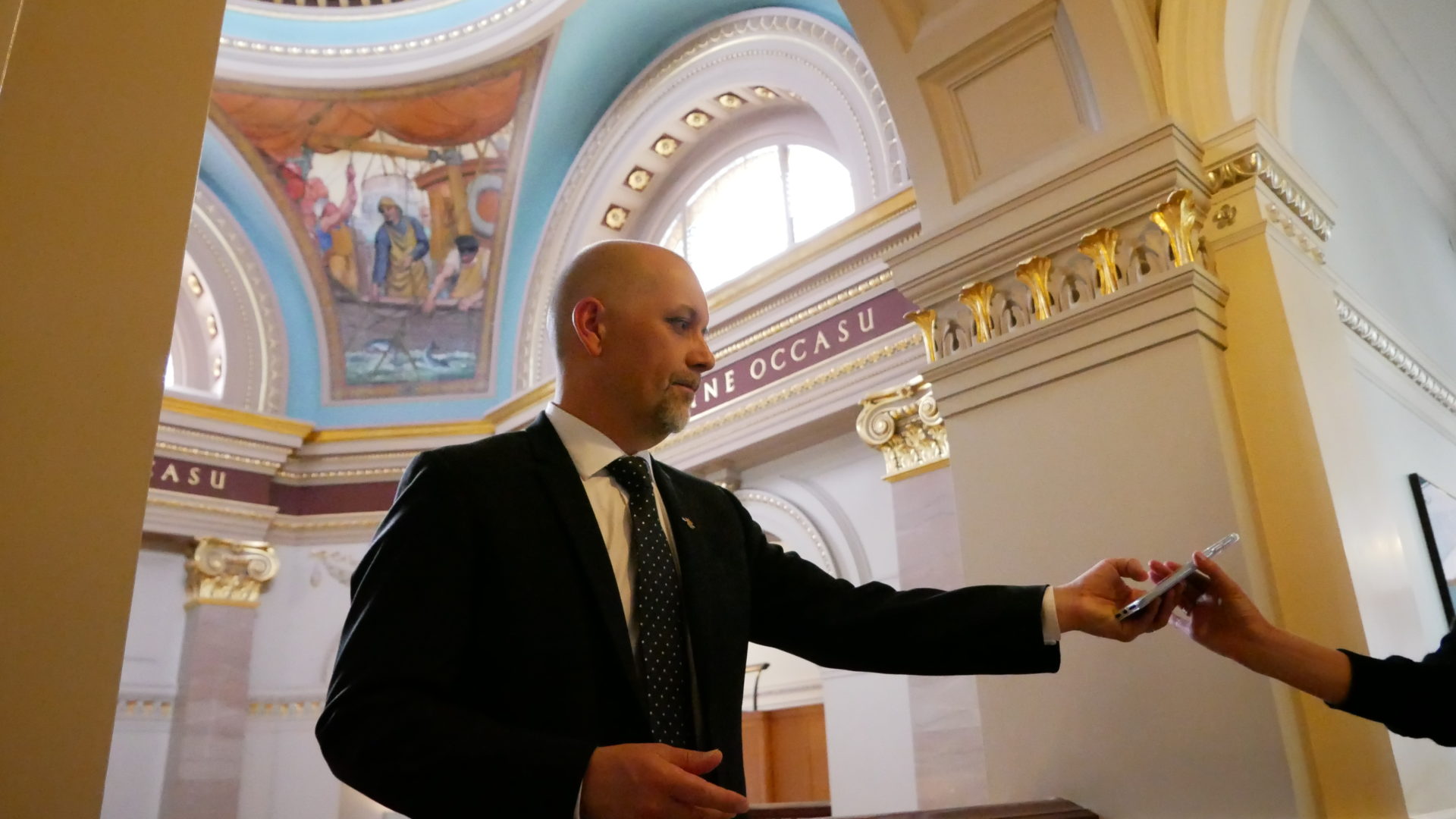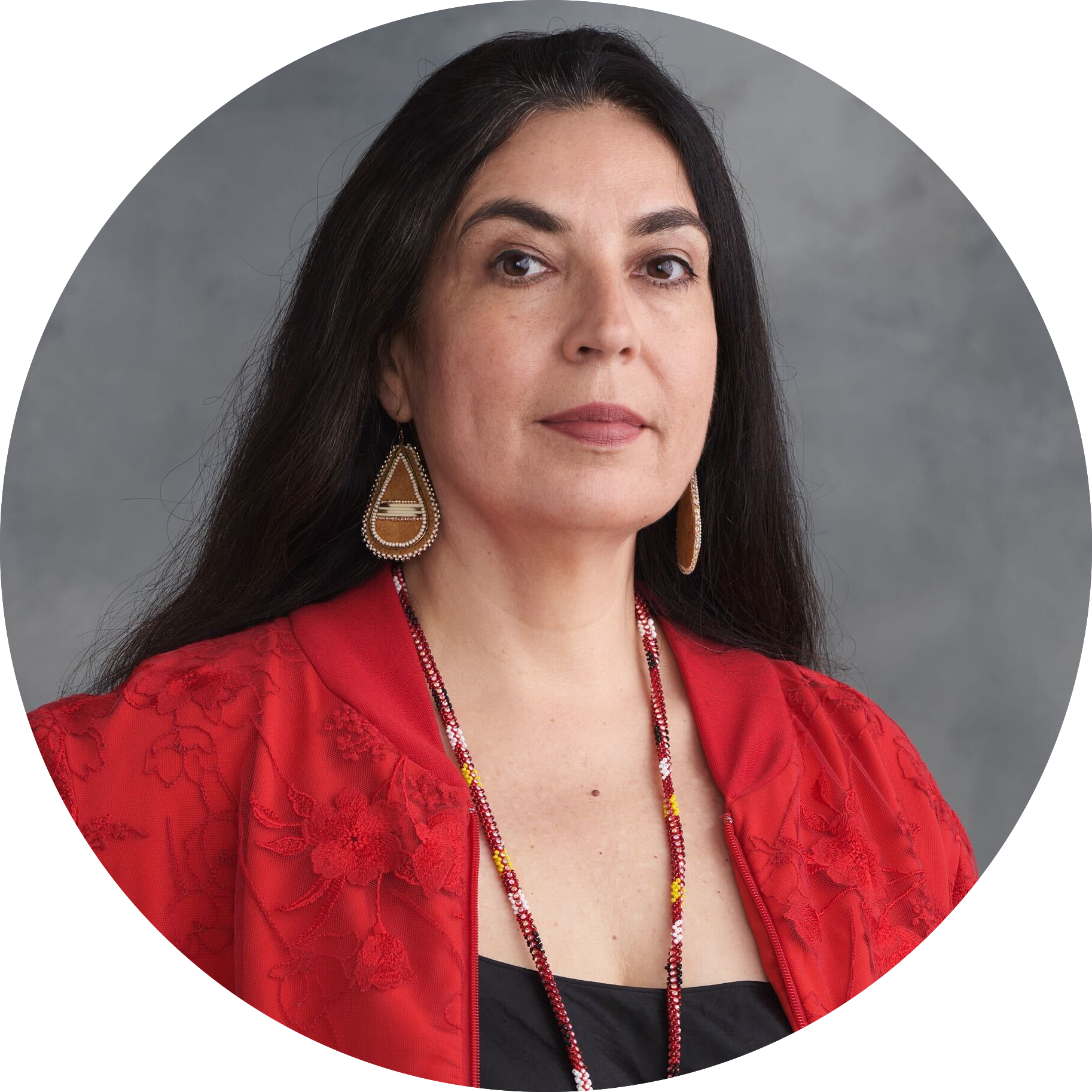
B.C. failing to protect 81% of critical habitat for at-risk species: government docs
B.C. allows industrial logging in critical habitat for at-risk species — part of the reason...
The B.C. NDP came to power last year promising to protect wild salmon and keep fish farms away from wild salmon migration routes like the Broughton, an archipelago where ocean currents funnel past hundreds of rainforest islands, bringing nutrient rich water to a plethora of sea life.
On Wednesday — in a sometimes unclear and other times downright confusing announcement that Agriculture Minister Lana Popham described as a “bold” new approach to salmon farming — government unveiled two new rules that will affect the renewal of salmon farming tenures in B.C. waters.
Media reports have described the new rules as amounting to a First Nations’ veto power over fish farms. But that’s been contested by government. Others were expecting B.C. to cancel fish farm tenures in the Broughton, where First Nations have protested their existence for years. But the new rules won’t apply to those farms.
So how exactly should we understand the bold new announcement that has so many people scratching their heads? The Narwhal plunges in.
First of all, the new rules won’t take effect for four years, until 2022.
Yup, that’s right, 2022 — a timeframe that Chief Bob Chamberlin, vice president of the Union of B.C. Indian Chiefs, called “four years too late” and Adam Olsen, the B.C. Green Party spokesperson for wild salmon, called embarrassing and a “failure of leadership.”
“It’s like surgeons announcing that starting in 2022 they are going to start washing their hands before procedures,” said Olsen. “This should’ve been the standard all along.”
The reason for the extended timeframe, according to government, is that the vast majority — almost 80 per cent — of B.C.’s finfish farm sites have federal licences set to expire in 2022.
No, according to Popham.
“There is no veto,” the minister told reporters.
And here’s where confusion begins to set in.
Under the first new rule, B.C. will only grant tenures to fish farm operators who have “negotiated agreements with the First Nation(s) in whose territory they propose to operate.”
But some First Nations have overlapping traditional territories and some First Nations support salmon farming while other oppose. It’s not clear if fish farm operators must negotiate agreements with all First Nations involved before tenures are granted starting in 2022, or just some.
At a press conference, Popham dodged questions about what constitutes an agreement, saying she was not going to speak “on behalf of First Nations” or define consent.
Some First Nations leaders praised the new rule, saying it is in keeping with the B.C. government’s pledge to uphold the UN Declaration on the Rights of Indigenous Peoples.
Stan Proboszcz, the science advisor for Watershed Watch Salmon Society, called it a “positive step in the right direction.”
“It’s kind of revolutionary for any government — provincial or federal — to really not let this industry get exactly what it wants,” Proboszcz told The Narwhal.
No.
Twenty fish farm tenures in the Broughton, nestled between the north end of Vancouver Island and the Coast Mountains of mainland B.C., were set to expire at midnight on Wednesday.
The government announced that the Broughton is excluded from its new framework salmon farm tenures and said tenures in the archipelago will now be renewed on a month-to-month basis, a move welcomed by First Nations leaders.
Month-to-month tenures are “not unusual,” according to the B.C. Salmon Farmers Association, which pointed out in a news release that some previous tenures rolled over monthly for up to five years.
Popham said the short tenures will allow the government to continue talks with Broughton-area First Nations in an effort to resolve concerns about specific open net pen farms.
“I sat in the Big House in the Broughton area in the fall and elders looked at us and told us their freezers were bare,” the minister told reporters.
“That’s a lens that in the past we haven’t looked through when making decisions and making policy and that’s the lens that we’re using.”
Some view the exclusion of the Broughton from the new rules as a sign that open net pen farms in that region could be shut down before 2022.
“There is a fair bit of hope now in the Broughton Archipelago,” Proboszcz said.
The Broughton has been the nexus of salmon farming protests and legal actions aimed at removing fish farms from wild salmon migration routes, as evidence mounts that farmed salmon diseases negatively impact shrinking wild salmon stocks, especially during smolt migrations.
The ‘Namgis, Musgamagw and Mamalililukulla First Nations recently participated in a months-long occupation of a Marine Harvest fish farm in the archipelago.
In March, the ‘Namgis filed an application for an injunction against Marine Harvest to prevent the company from restocking a fish farm with up to one million Atlantic salmon smolts.
While the injunction was unsuccessful, the judge agreed there is “real and non-speculative likelihood of harm” to the First Nation’s way of life due to fish-borne disease.
The Dzawada’enuxw First Nation recently took the fight against salmon farms in the Broughton to a new level by filing a claim of aboriginal title in B.C. Supreme Court, claiming that several salmon farming tenures are not authorized because they are in Aboriginal title areas.
Most of the 10 fish farms affected by the title claim have annual licences from DFO.
Here’s where the B.C. government’s “new approach to salmon farm tenures” gets a little murkier.
The NDP announced that, starting in 2022, provincial tenures will only be granted to fish farm operators who have satisfied Fisheries and Oceans Canada (DFO) that their operations will not “adversely impact wild salmon stocks.”
But isn’t DFO already looking out for wild salmon stocks, you might ask?
Not according to some scientists and legal experts, who believe DFO’s ability to protect wild salmon stocks is compromised because DFO is both the regulator of the salmon farming industry and a promoter of the industry and its products.
“In my opinion the federal government is really failing at overseeing this industry,” said Proboszcz.
Olsen said distrust with DFO runs high when it comes to protecting wild salmon over and above the aquaculture industry.

Green Party MLA Adam Olsen spoke to The Narwhal in the B.C. legislature where he noted a painting in the Memorial Rotunda representing fishing, considered one of the four pillars of B.C.’s economy. Photo: Carol Linnitt / The Narwhal
“The people in B.C. are increasingly skeptical about whether the DFO even likes fish or not,” Olsen told The Narwhal. “They’re not standing up for the right part of the industry…they’ve basically managed wild fish stocks to zero.”
“I don’t have a lot of nice things to say about that agency,” he said.
The 2012 federal Cohen Commission, which examined the decline of B.C. salmon stocks, identified DFO’s dual roles as both regulator and promoter as a potential conflict of interest that may impede the agency’s ability to protect wild fish stocks.
It recommended Ottawa remove salmon farming industry promotion from DFO’s mandate — something that hasn’t happened.
A similar conclusion was reached by an expert panel of the Royal Society of Canada.
And a recent report by Canada’s commissioner of the environment and sustainable development found the federal government has put wild salmon species in danger by not adequately managing risks associated with salmon farming.
Commissioner Julie Gelfand determined that DFO is not monitoring the health of wild fish, has not adequately enforced regulations aimed at minimizing harm to wild fish from salmon farming operations, and has set no limits on the amount of pesticides and drugs that open-net fish farms can use to treat diseases.
But the B.C. government can’t really do much to fix that because responsibility for wild salmon health rests with Ottawa.
“We expect Ottawa to fulfill its obligation to protect wild salmon,” Popham said. “And I’ve discussed this with [Fisheries] Minister [Dominic] Leblanc and it is my understanding that there is a renewed federal commitment to do so.”
So the second “new” rule essentially amounts to prodding the federal government to do its job properly, Proboszcz said.
“I think the government is trying to remind folks that the federal government is really responsible here.”
Before 2010, the province was responsible for managing most aspects of fish farming — including licensing and regulating the industry and regulating waste discharge — while the federal role focused on the potential impacts of aquaculture on wild fish and fish habitat.
But a 2009 B.C. Supreme Court decision determined that a fish farm operation is a “fishery.” The ruling clarified that the federal government has exclusive jurisdiction for regulating fisheries, including fish farms.
An aquaculture management agreement hammered out by Ottawa and B.C. in 2010 clarified the responsibilities of both governments with respect to salmon farming.
B.C. issues permits for sewage discharge and pesticide use and authorizes the use of crown land and the foreshore through the granting of tenure agreements.
DFO issues licences and remains responsible for the conservation and protection of fish and fish habitat, and management and control of salmon farming and other aquaculture. It is also responsible for collecting data, and scientific research and monitoring programs.
B.C. salmon farms raise Atlantic salmon in Pacific waters, making the farmed fish technically an invasive species.
The fish are packed into open net pens instead of raised in closed containment systems like one operated by the ‘Namgis First Nation on land near Port McNeill, which began selling land farmed salmon to market in 2014.
Fish farms are believed to be hot spots for infecting declining wild salmon stocks with sea lice and diseases.
Recent research found wild salmon that swim past fish farms are at a higher risk of contracting piscine reovirus, a virus that affects the health of fish hearts, making it more difficult for them to swim upstream to reach salmon spawning grounds.
B.C. is about to become the last place on the West Coast to allow open net salmon farms, after Washington announced earlier this year it will end fish farm tenures in its waters
Get the inside scoop on The Narwhal’s environment and climate reporting by signing up for our free newsletter. Angello Johnson’s shoulders burn, and his arms...
Continue reading
B.C. allows industrial logging in critical habitat for at-risk species — part of the reason...

Lake sturgeon have long been culturally significant and nutritionally important to First Nations in Ontario,...

Mark Carney and the Liberals have won the 2025 election. Here’s what that means for...

